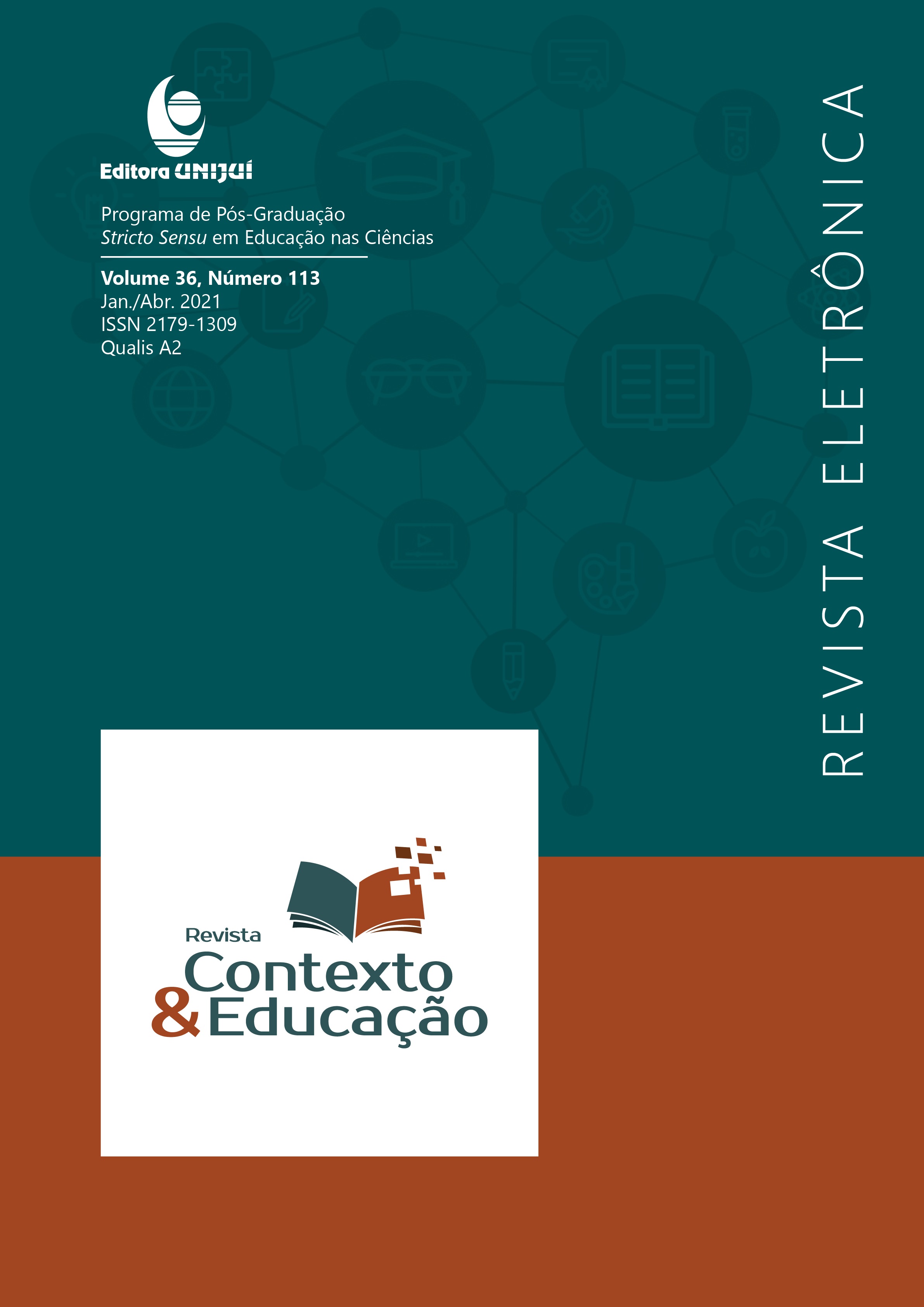EARLY ALGEBRA NOS ANOS INICIAIS DO ENSINO FUNDAMENTAL: MANIFESTAÇÕES DO PENSAMENTO ALGÉBRICO
DOI:
https://doi.org/10.21527/2179-1309.2021.113.105-115Resumo
O objetivo principal deste artigo é analisar qualitativamente a produção escrita de estudantes do 2º ano do Ensino Fundamental de uma escola pública da cidade de XXXXXXX ao realizarem uma tarefa traduzida da Early Algebra em sala de aula, a fim de identificar possíveis manifestações do pensamento algébrico em suas produções. Para atender ao objetivo principal, utilizamos em nossos procedimentos metodológicos a Análise de Conteúdos de Bardin (2011). O resultado do estudo indica que os estudantes mostraram ser capazes de atribuir significados para as sequências de símbolos presentes na tarefa, pois traduziram informações representadas simbolicamente para outra forma de representação, a escrita, que mobiliza a vertente representar do pensamento algébrico proposto por Ponte, Branco e Matos (2009). Simultaneamente à tradução das informações, os estudantes estabeleceram relações com fatos que acreditamos significativos para eles, mobilizando duas das características do pensamento algébrico apresentadas por Almeida e Santos (2017): construir significado e estabelecer relações. Tais constatações sugerem ser possível trabalhar com tarefas que podem propiciar uma introdução ao desenvolvimento do pensamento algébrico nos anos iniciais do Ensino Fundamental, o que geralmente não ocorre com a frequência esperada.
Downloads
Publicado
Como Citar
Edição
Seção
Licença
Ao publicar na Revista Contexto & Educação, os autores concordam com os seguintes termos:
Os trabalhos seguem a licença Creative Commons Atribuição 4.0 Internacional (CC BY 4.0), que permite:
Compartilhar — copiar e redistribuir o material em qualquer meio ou formato;
Adaptar — remixar, transformar e criar a partir do material para qualquer fim, inclusive comercial.
Essas permissões são irrevogáveis, desde que respeitados os seguintes termos:
Atribuição — os autores devem ser devidamente creditados, com link para a licença e indicação de eventuais alterações realizadas.
Sem restrições adicionais — não podem ser aplicadas condições legais ou tecnológicas que restrinjam o uso permitido pela licença.
Avisos:
A licença não se aplica a elementos em domínio público ou cobertos por exceções legais.
A licença não garante todos os direitos necessários para usos específicos (ex.: direitos de imagem, privacidade ou morais).
A revista não se responsabiliza pelas opiniões expressas nos artigos, que são de exclusiva responsabilidade dos autores. O Editor, com o apoio do Comitê Editorial, reserva-se o direito de sugerir ou solicitar modificações quando necessário.
Somente serão aceitos artigos científicos originais, com resultados de pesquisas de interesse que não tenham sido publicados nem submetidos simultaneamente a outro periódico com o mesmo objetivo.
A menção a marcas comerciais ou produtos específicos destina-se apenas à identificação, sem qualquer vínculo promocional por parte dos autores ou da revista.
Contrato de Licença (para artigos publicados a partir de outubro/2025): Os autores mantém os direitos autorais sobre seu artigo, e concedem a Revista Contexto & Educação o direito de primeira publicação.


